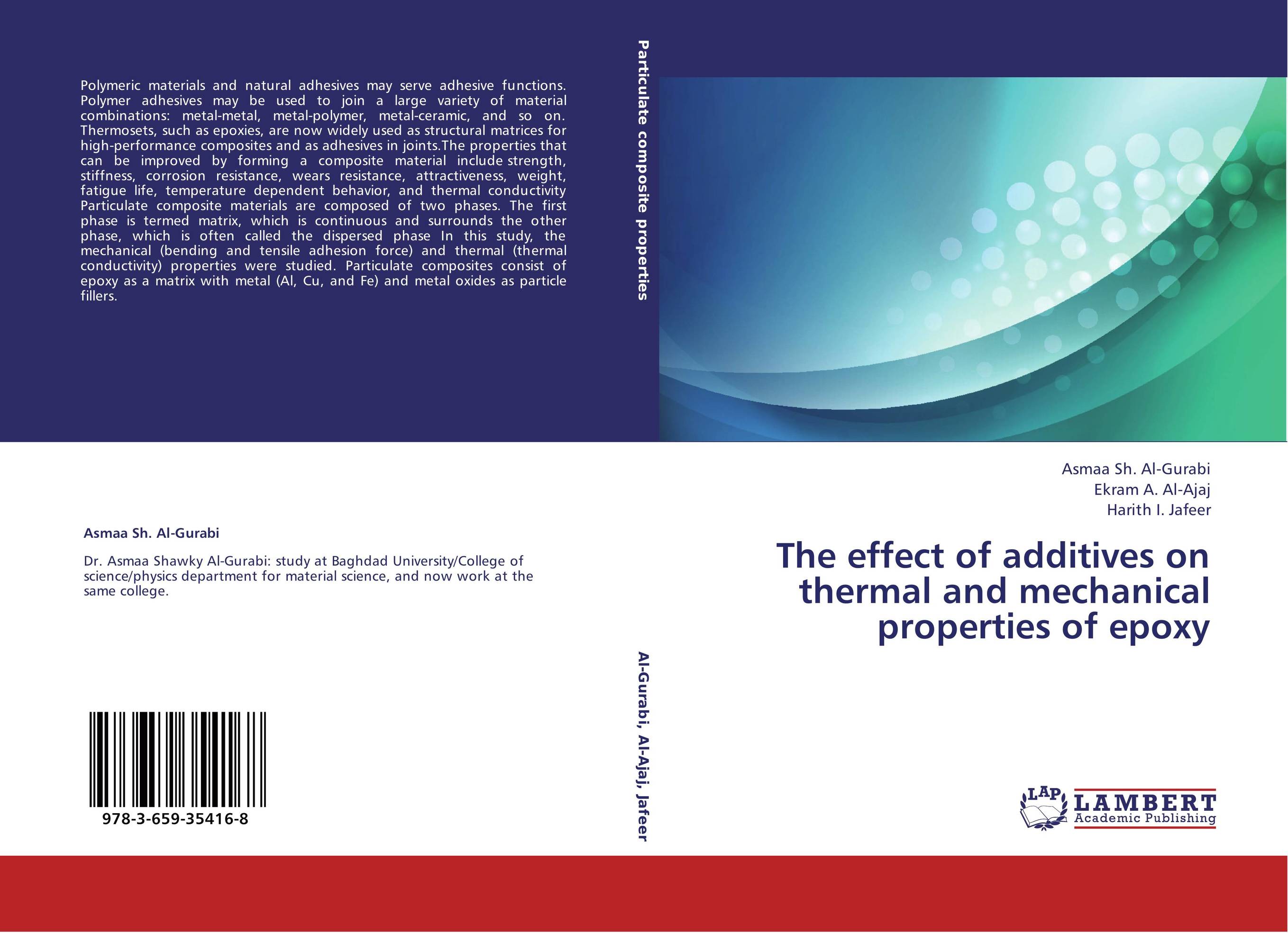| Поиск по каталогу |
|
(строгое соответствие)
|
- Профессиональная
- Научно-популярная
- Художественная
- Публицистика
- Детская
- Искусство
- Хобби, семья, дом
- Спорт
- Путеводители
- Блокноты, тетради, открытки
The effect of additives on thermal and mechanical properties of epoxy.

В наличии
| Местонахождение: Алматы | Состояние экземпляра: новый |

Бумажная
версия
версия
Автор: Asmaa Sh. Al-Gurabi,Ekram A. Al-Ajaj and Harith I. Jafeer
ISBN: 9783659354168
Год издания: 2013
Формат книги: 60×90/16 (145×215 мм)
Количество страниц: 124
Издательство: LAP LAMBERT Academic Publishing
Цена: 35709 тг
Положить в корзину
| Способы доставки в город Алматы * комплектация (срок до отгрузки) не более 2 рабочих дней |
| Самовывоз из города Алматы (пункты самовывоза партнёра CDEK) |
| Курьерская доставка CDEK из города Москва |
| Доставка Почтой России из города Москва |
Аннотация: Polymeric materials and natural adhesives may serve adhesive functions. Polymer adhesives may be used to join a large variety of material combinations: metal-metal, metal-polymer, metal-ceramic, and so on. Thermosets, such as epoxies, are now widely used as structural matrices for high-performance composites and as adhesives in joints.The properties that can be improved by forming a composite material include strength, stiffness, corrosion resistance, wears resistance, attractiveness, weight, fatigue life, temperature dependent behavior, and thermal conductivity Particulate composite materials are composed of two phases. The first phase is termed matrix, which is continuous and surrounds the other phase, which is often called the dispersed phase In this study, the mechanical (bending and tensile adhesion force) and thermal (thermal conductivity) properties were studied. Particulate composites consist of epoxy as a matrix with metal (Al, Cu, and Fe) and metal oxides as particle fillers.
Ключевые слова: particulate polymer composite, thermaland mechanical properties



